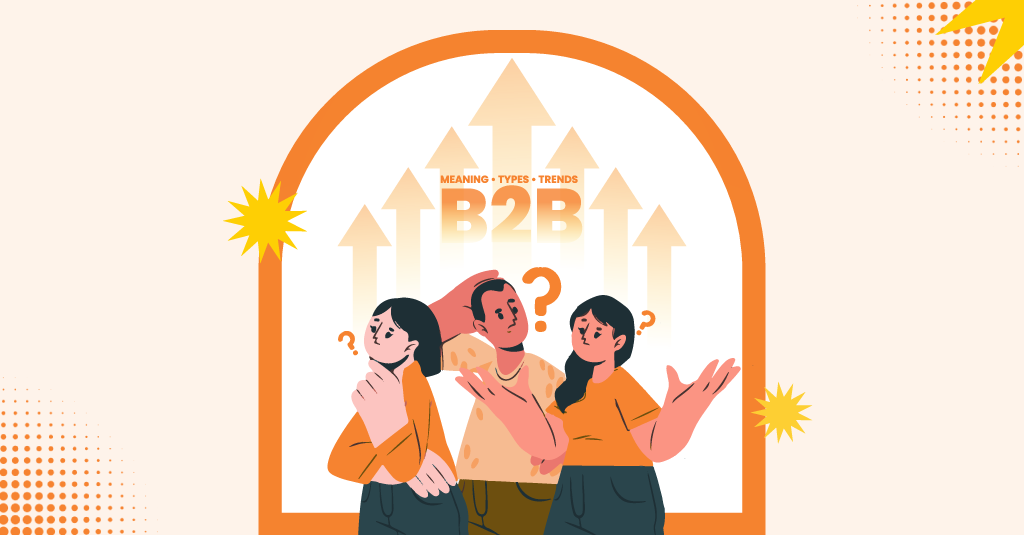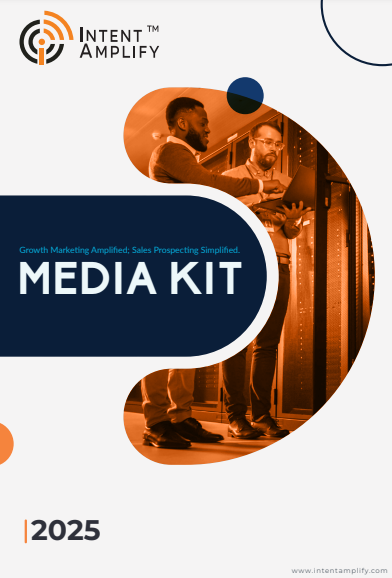
What Is B2B Marketing? Meaning, Types, and Trends
- Last updated on: July 7, 2025
With business purchasing increasingly digital, tailored, and data-influenced, B2B marketing has to move beyond stale campaigns. This article delves into the basics, types, and current trends shaping contemporary B2B strategies and how brands can remain relevant.
What is B2B marketing?
B2B marketing, or business-to-business marketing, is how companies promote their products or services to other businesses. It’s different from B2C (business-to-consumer) marketing because the target is not individual customers but business decision-makers like CEOs, procurement heads, or managers.
B2B marketing often uses multiple channels such as email, LinkedIn, search engines, websites, trade shows, webinars, and videos to reach buyers who influence or control purchasing decisions.
For example, a software company may market HR tools to large enterprises that want to automate payroll. The messaging, format, and buying process are focused on solving business problems and delivering ROI, not emotional appeal.
Why is B2B marketing important?
B2B marketing is important because the majority of businesses depend on other companies for products, services, or software to operate smoothly. Whether it’s a logistics company leveraging fleet management software or a coffee shop purchasing from wholesale buyers, B2B marketing assists in linking solutions and business demands. It also fosters long-term relationships, facilitates high-value transactions, and achieves brand trust in competitive sectors.
B2B online advertising expenditure is forecast to hit $48.15 billion in 2026, having risen from $38.67 billion in 2025. The highest growth will be experienced by India and Mexico, although the U.S. and China dominate in spend.
Types of B2B Marketing
B2B marketing encompasses diverse formats based on audience behavior and stages in the buying process. The major types are:
- Content Marketing: Thought leadership, whitepapers, case studies
- Email Marketing: Lead nurturing, newsletters, follow-up sales
- Account-Based Marketing (ABM): Highly targeted campaigns for strategic accounts
- Event Marketing: Trade shows, webinars, virtual summits
- Partner Marketing: Co-marketing with complementary companies
- Social Media Marketing: Particularly LinkedIn, for brand awareness and lead generation
An effective B2B approach combines these formats to engage decision-makers across several touchpoints.
What is the key difference between B2B and B2C marketing?
B2B marketing aims at business decision-makers, whereas B2C marketing aims at individual consumers. The strategies vary in tone, approach, and purchasing behavior. B2B depends on reason, ROI, and longer cycles involving multiple stakeholders, whereas B2C targets emotion and quick decision-making. Both need different messaging and tactics to capture their audience and lead to conversions.
- Audience Focus: B2B targets other businesses, while B2C focuses on individual consumers.B2B has longer sales cycles and multiple decision-makers; B2C is typically faster and driven by individuals.
- Tone and Messaging: B2B employs rational, value-based messaging; B2C employs emotional appeal and lifestyle advantage.
- Content Format: B2B employs whitepapers, demos, and email; B2C tends to employ social media, influencers, and promotions.
- Purchase Motivation: B2B purchasers drive for efficiency, ROI, and performance; B2C purchasers tend to drive for convenience, status, or entertainment.
What are the best B2B marketing trends for 2025–2026?
- AI-driven personalization – AI is employed for more intelligent targeting, content suggestions, and dynamic email marketing. 60% of B2B marketers intend to pilot AI in 2026.
- ROI-based ad buying – B2B customers require a demonstration of value. The majority of ad expenditures today concentrate on quantifiable ROI and lead quality, not clicks.
- Independent B2B teams and budgeting – Major companies are creating separate B2B units, frequently establishing budgets on an annual basis, with spikes in March–April and September–October.
- First-party data emphasis – As third-party cookies disappear, gathering and activating your first-party customer data is more important than ever.
- Purpose-driven and sustainability messaging – Increasingly, B2B purchasers are gravitating to brands that show environmental, ethical, and social responsibility.
What are the top B2B marketing trends for 2025–2026?
- AI-powered personalization – AI is being used for smarter targeting, content recommendations, and dynamic email campaigns. 60% of B2B marketers plan to test AI in 2026.
- ROI-driven ad buying – B2B buyers demand proof of value. Most ad budgets now focus on measurable ROI and lead quality, not just clicks.
- Separate B2B teams and budgets – Large enterprises are building dedicated B2B divisions, often setting budgets annually, with spikes around March–April and September–October.
- First-party data focus – With third-party cookies fading, collecting and activating your customer data is now a top priority.
- Sustainability and purpose-driven messaging – More B2B buyers are aligning with brands that demonstrate environmental, ethical, and social responsibility.
How to Build an Effective B2B Marketing Strategy?
An effective strategy in 2025 needs a solid base:
- Define ICP (Ideal Customer Profile)
- Map the Buyer’s Journey
- Align Sales & Marketing Goals
- Use Data & AI to Drive Campaigns
- Test, Measure, and Optimize Regularly
It’s not about creating leads—it’s about driving qualified, revenue-ready opportunities.
Why Intent Amplify Is Your B2B Growth Partner
At Intent Amplify, we assist B2B businesses in developing winning strategies that fuel leads, revenue, and long-term brand trust. From smart content to end-to-end execution, our team mixes data and creativity to amplify your intent right where your buyers live. Prepared to take your B2B marketing to the next level in 2025? Let’s connect.
FAQs
Q1. What is the ultimate objective of B2B marketing?
To create high-quality leads, establish relationships, and generate revenue through targeted campaigns aimed at business decision-makers.
Q2. How is B2B different from B2C marketing?
B2B is all about logic, ROI, and multi-touch journeys; B2C is about emotional connection and rapid conversions.
Q3. What are examples of B2B marketing channels?
LinkedIn, email, webinars, whitepapers, events, and industry-specific platforms.
Q4. Is B2B marketing effective on social media? Why or why not?
Yes, especially on platforms like LinkedIn, where business buyers actively research and engage.
Q5. What trends will shape B2B marketing in 2025?
AI personalization, interactive content, sustainable branding, and advanced ABM strategies.




